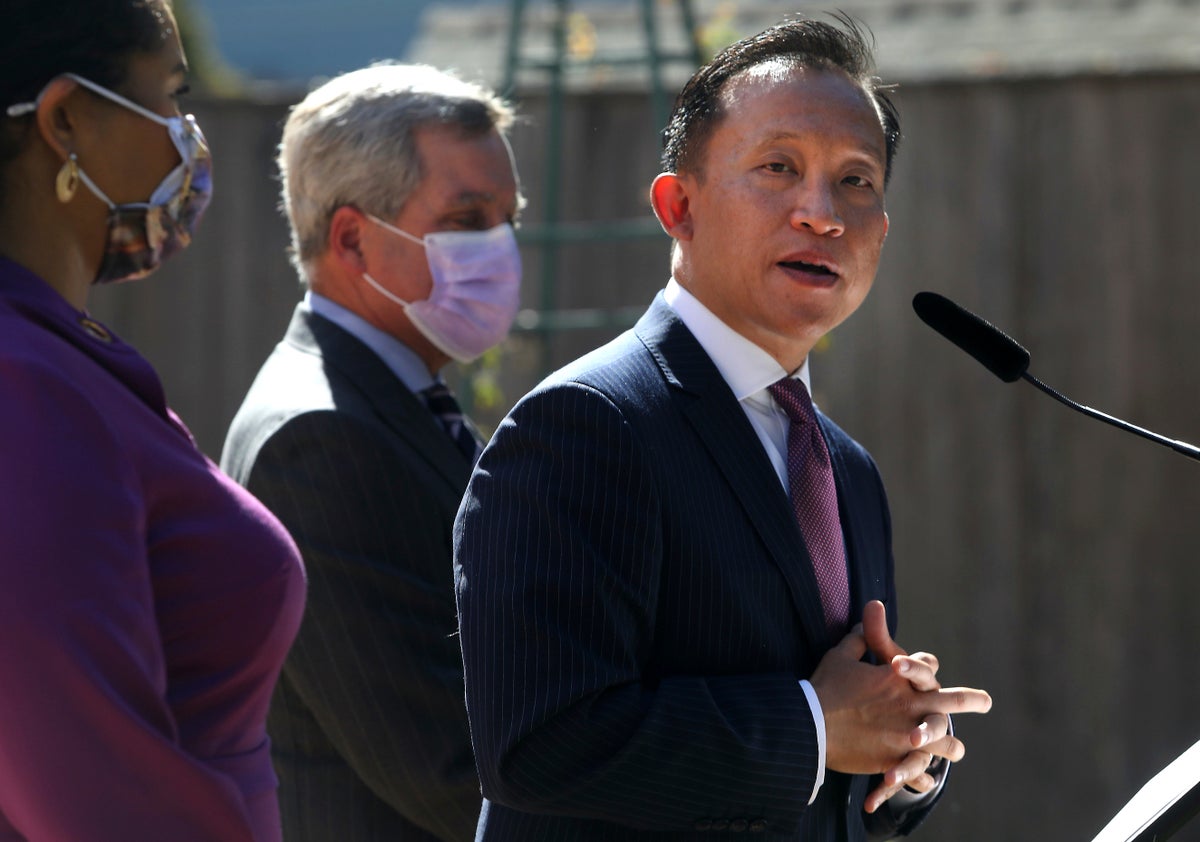
Opioid makers Allergan and Teva have agreed to pay $54 million in cash and overdose reversal drugs to settle a federal lawsuit brought by San Francisco alleging the drug industry fueled an overdose and addiction surge that created a public nuisance.
City Attorney David Chiu made the announcement with closing arguments against the sole remaining defendant, Walgreens, scheduled to begin Tuesday. The lawsuit alleges that the pharmacy chain over-dispensed opioids without proper oversight and failed to identify and report suspicious orders as required by law.
The agreement announced Tuesday calls for the two opioid manufacturers to pay San Francisco $34 million in cash and provide $20 million worth of the overdose reversal drug, Narcan.
Teva Pharmaceuticals, a U.S. affiliate of Teva Pharmaceutical Industries Ltd., said in a statement that the settlement is a step forward “in getting life-saving treatments to people suffering from opioid addiction” but was not an admission of liability or wrongdoing.
Allergan and Walgreens did not respond to a request for comment.
The San Francisco case is one of only a handful of government claims against companies over the opioid epidemic so far that have gone to trial.
More cases have settled before trials. Earlier this year, the distribution companies AmerisourceBergen, Cardinal Health and McKesson plus drug maker Johnson & Johnson finalized nationwide settlements totaling $26 billion.
And the drug maker Purdue Pharma is in court trying to win approval for a deal that could be worth $10 billion that it crafted after declaring bankruptcy amid the weight of lawsuits facing the OxyContin maker.
In all, proposed and completed settlements over the epidemic in the U.S. have totaled more than $40 billion, according to an Associated Press tally.
Much of the legal action so far has involved companies that make or distribute opioids, but litigation against pharmacies has emerged, too.
So far, there has been a verdict in just one pharmacy case. Last year, an Ohio jury found that CVS, Walgreens and Walmart recklessly distributed opioids in two counties. It’s up to a judge to determine their penalty.







